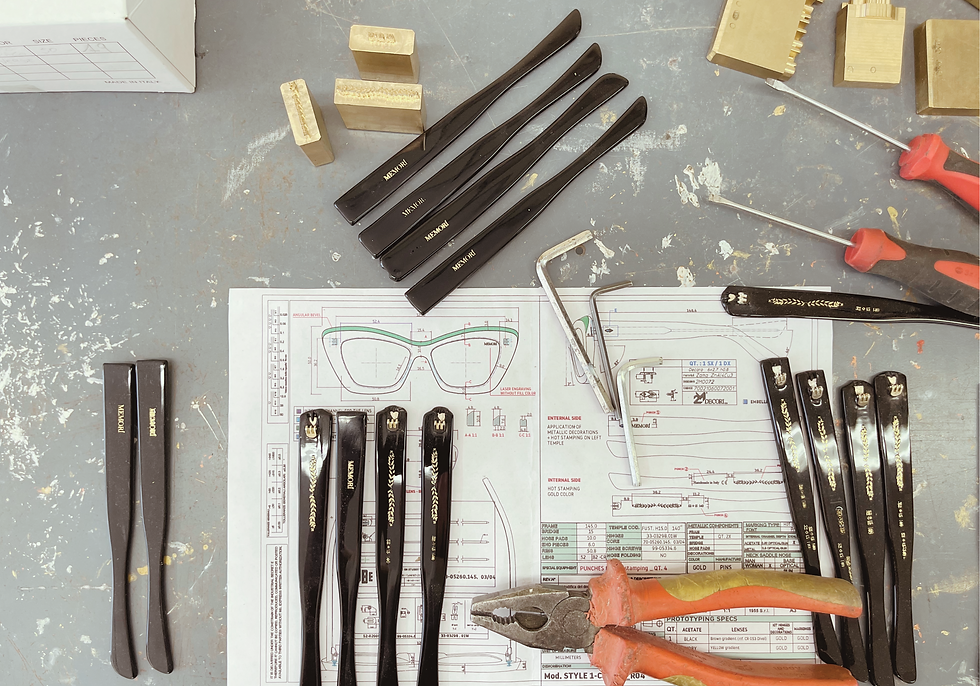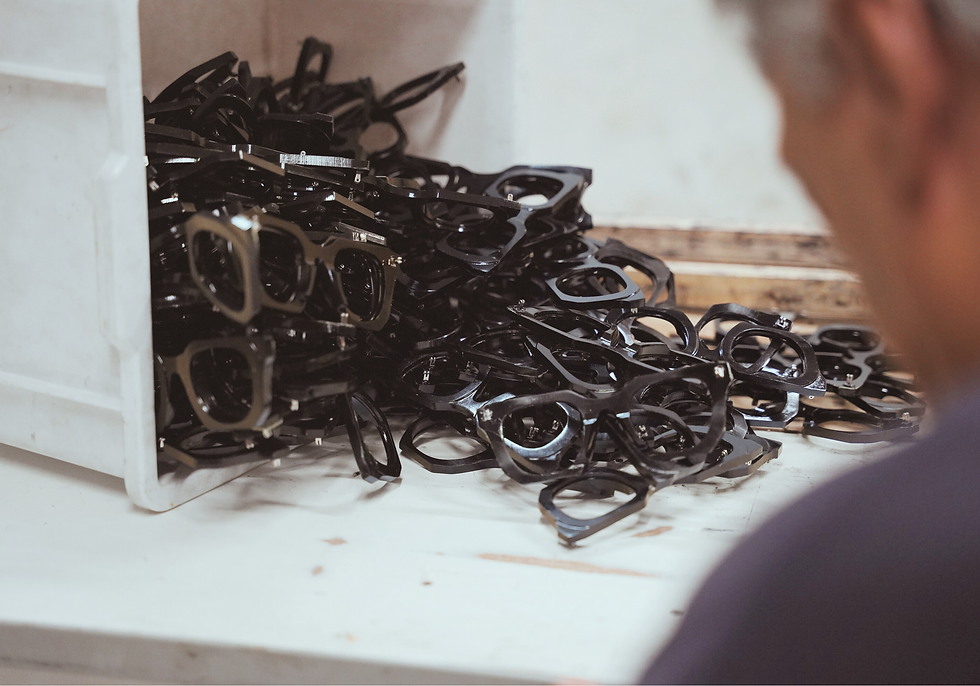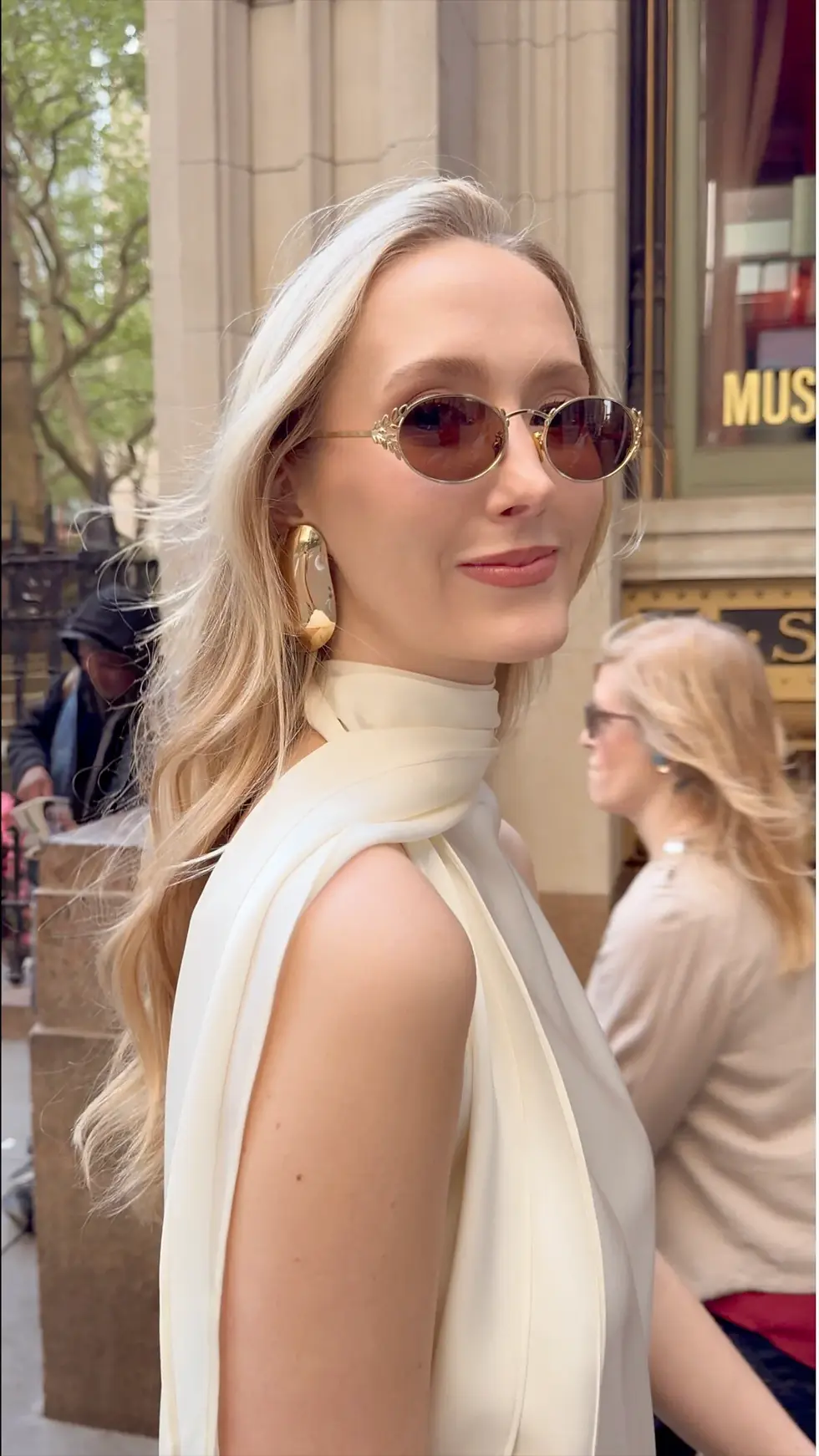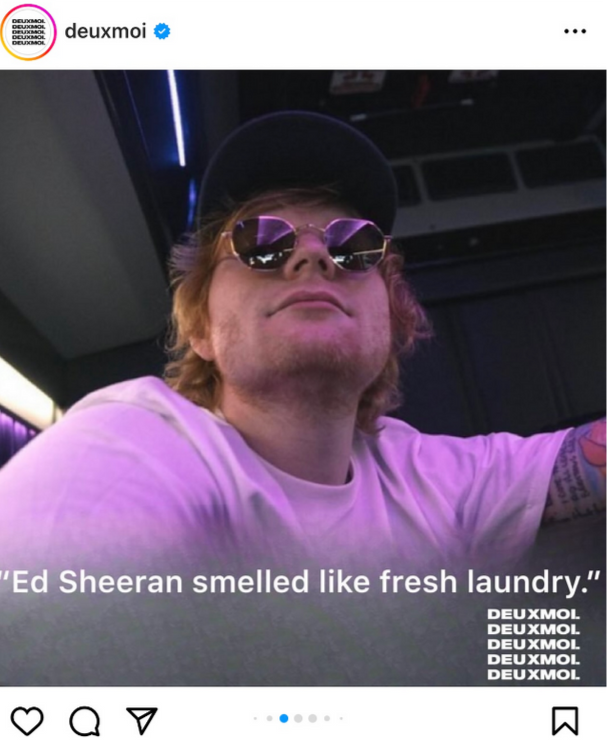Design Thinking: Memorí Eyewear
- Rachel Huss
- Aug 15, 2025
- 4 min read

In Graduate School, professors love to discuss "Design Thinking." Design Thinking is an iterative process in which we seek to understand the user, challenge assumptions, and redefine problems to identify alternative strategies and solutions that might not be instantly apparent with our initial level of understanding (Dam and Siang). Design Thinking enables companies to understand consumer needs.
In this article series, I contacted different companies to learn how organizations apply Design Thinking. I spoke with Memorí Eyewear's Founder Kari Dowiak to understand how the company incorporates design thinking into its products.

1. What makes Memorí Eyewear different from other glasses companies?
Most glasses companies do "one size fits most" sizing with their frames. About 5% of companies offer two sizes in a few styles. A company's primary goal is profit, and inventory is the #1 killer of fashion brands. If they restrict their inventory to only one size per pair, and that pair fits 80% of people, they can run a pretty good business.
But what about the 20% who don't fit? We are the only eyewear brand in the world designing specifically for small and narrow faces.
Because our narrow fit frames are entirely outside of industry sizing standards, we can't use existing molds. We had to start from scratch. Our glasses are 100% handmade in Italy. Italy is the birthplace of modern eyewear and the home of the most experienced artisans making the frames.
Because everything we do is small, fit, and completely original, we only create small batches. We never produce more than 100 products per pair. It is very unlikely that you will ever run into another person on the street who has your sunglasses.

2. How has Memorí Eyewear evolved since its founding?
I started Memorí because I could never find glasses that fit my narrow face. I'm not "petite" by fashion industry standards (I'm 5'7), but my face is small and narrow. Honestly, most glasses were too wide or made me look like a bug. So I designed what was missing from my wardrobe: a cat eye that's strong and elegant but not too retro, round frames with metal scoop details that I could never find in a narrow fit, etc. Our first collection consisted of glasses made for my measurements.
Pretty quickly, I realized the small face struggle went deeper than I dreamed. There's a whole group of people with even smaller faces than mine. They have an even harder time than I do finding glasses that work for their features from mainstream brands. Because of this, we've evolved. We just launched our first model in two sizes: the "Laurel Oval." The narrow size is for the smallest of faces: shorter bridges, shorter temple lengths—so the glasses curve correctly around the ear, sit comfortably, and don't slide down your nose all day. Generally, these work very well on anyone under 5ft 2. These are simple, minor tweaks, but the big brands are not willing to do it. I'm happy to. Nothing makes me happier than watching someone finally find a pair of glasses that they can put their best face forward in.

3. How does Memorí Eyewear incorporate its mission and vision into its products?
Our mission is to be the best eyewear brand in the world for smaller face shapes. We accomplish this mission by designing gorgeous, sculptural, interesting glasses, using the highest quality Italian materials and artisanal production. The glasses happen to be smaller than industry standard, which, honestly, for about 40% of people, means they fit and look better than any other sunglasses they have ever tried on. The customer journey should be "I love those" and then "wow, they fit perfectly"... Not a process where the glasses are unremarkable, but because they fit, they will buy them. There's no heart in that.
We might expand into more sizing one day, but we will always be a narrow-fit-first company. I aim to create an environment where people who have never been able to wear glasses they love can walk into our store, shop, or visit our website, and not have to wonder if the glasses will fit, only if they are to their tastes.

4. What advice would you give to students and young professionals who want to enter this field?
If someone wants to get into eyewear specifically, remember: glasses aren't just fashion, they are a medical device. The sunglass industry encompasses a range of complexities, including UV protection, prescription lenses, vision insurance, drop testing, and numerous safety and compliance requirements. A lot is going on behind the scenes to make eyewear responsibly.
If someone wants to start a fashion brand, I always encourage them to know their numbers. The fashion industry might look glamorous, but the reality is a lot of negotiating and spreadsheets. If you don't have a clear vision for the business you are building from the start. Do you want to be a DTC or traditional wholesale, Upmarket or affordable, etc?
It's tough to build a long-term, profitable business. I recommend working for a few years in a corporate environment, as it provides excellent training for going off on your own.

5. What's the future of the company?
To keep making kickass sunglasses that people fall in love with! Be known as the under-the-radar brand you must know about if you have elevated taste and a smaller face shape. I'd love to open a small store one day, but outside of our store, we don't have plans to partner with traditional department stores. Perhaps there will be collaborations with optical stores in the future, which would be ideal for people who want prescription lenses. Follow along and find out! I post a lot of unfiltered behind-the-scenes content on our Instagram and TikTok accounts (@Memori.Eyewear for both platforms).









Comments